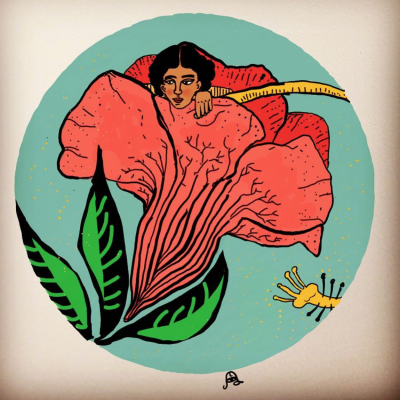Desire
In an interview with TARSHI, Paromita Vohra tells it to us as only she can: frank, articulate and free of male cow poop!
How does one negotiate the “delicate and complex” terrain of giving, receiving and respecting consent, and safely and effectively express sexual desire?
When representing sexuality, these stories went beyond dramatic and one-dimensional representations of sex and sexual orientation.
Prisms cause rainbow effects because they refract light into its constituent colours. What this means is that the prism itself does not create the colours we see, but that they are already present in what appears to be colourless or ‘white’ light.
But here is the thing. In heterosexual relationships, how are women and men going to learn to see women’s desires if the world does not see them? If the world is shaped to conform to a certain type of man’s desires only? Where is consent without a diversity of desires and a galaxy of desirability?
While sex sometimes can be fun, and at other times complicated and frustrating –is always love, lust or desire: which one you are signing up for and which one did you want to actually explore?
क्या हमें पोक्सो कानून के इन प्रावधानों को चुनौती नहीं देनी चाहिए क्योंकि इस कानून के अंतर्गत बच्चों की स्वायत्तता और उनके मौलिक अधिकारों को नज़रंदाज़ करते हुए प्रभावी रूप से उनके बीच आपसी सहमति से हर तरह के यौन संपर्क और व्यवहार को अपराध मान लिया गया है?
Loving sex has only opened doors for me to know more about the world and myself. It helps me love and appreciate myself more and also, to a fair bit, tolerate this hypocritical and violent world. It gives me hope.
Should we train it to think well, all these minds would see reason in similar things and they would come up with the same absolute reality – a universal Truth. That Truth would be a reflection of the Natural order for all humankind. That Truth alone would be beautiful.
The last few years have been a struggle in accepting myself with the possibility of always having acne and believing that I am still beautiful, even on the “outside”. This journey of believing that I can be worthy of love, attraction, expression and desire regardless of my looks continues to be liberating and empowering.
Sexual desire is a potent force – it can and has led to all kinds of mayhem, but at the same time it can be a powerfully liberating and transformative force.
In a two-part interview with TARSHI, Paromita Vohra tells it to us as only she can: frank, articulate and free of male cow poop!
The point is not to lay the blame on women or assign them responsibility for patriarchy. It is to encourage a deeper introspection of our desires. My first boyfriend, whom I got to know in 2010, was in the habit of asking me (and other women he had previously dated) whether he could kiss me, before doing so. Every time any sexual activity was involved he would always ask beforehand and continuously check in if I was comfortable throughout.
अंत में, मुझे तो फिल्में विषयों और परिस्थितियों को एक अन्य अंदाज़ से देखने का अवसर देती हैं। मैंने फिल्मों को देखकर शरीर और इसकी इच्छाओं के बारे में बहुत कुछ जाना है – मैंने समझा है कि दर्द जो कुछ लोगों के लिए दर्द होता है, वही दूसरों के लिए आनंद के स्रोत बन सकता है। मैंने यह भी जाना है कि पैसे का लेन–देन करके किया जाने वाला सेक्स हमेशा अपराध नहीं होता और यह कि सभी लोग आनंद का अनुभव करते हैं और कर सकते हैं।
The concluding chapter reiterates the aims of the book, i.e., “to start critical conversations within the disciplines of psychology, social work, childhood studies, and family studies in India and to think about exclusions inherent in these disciplines.















